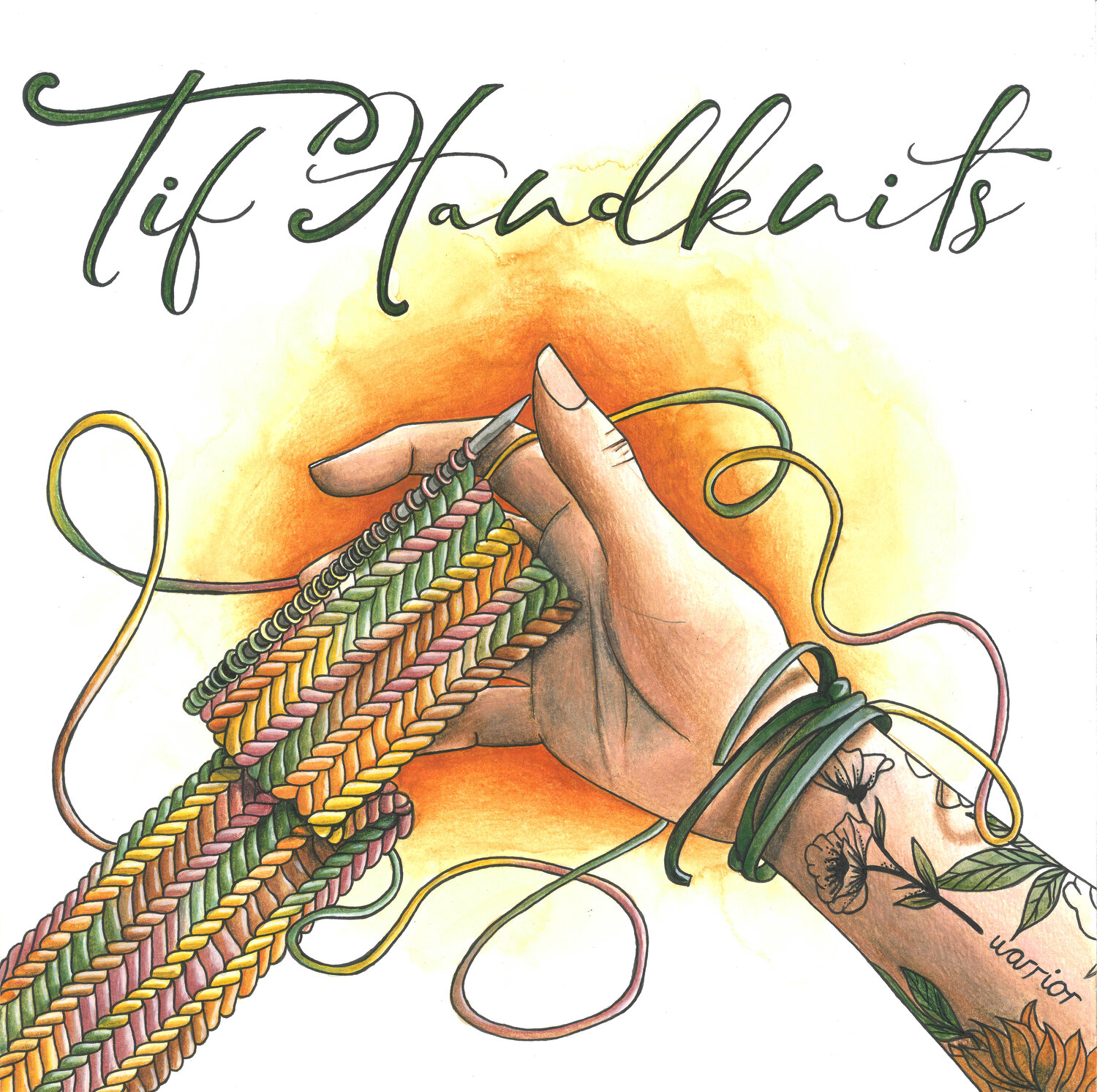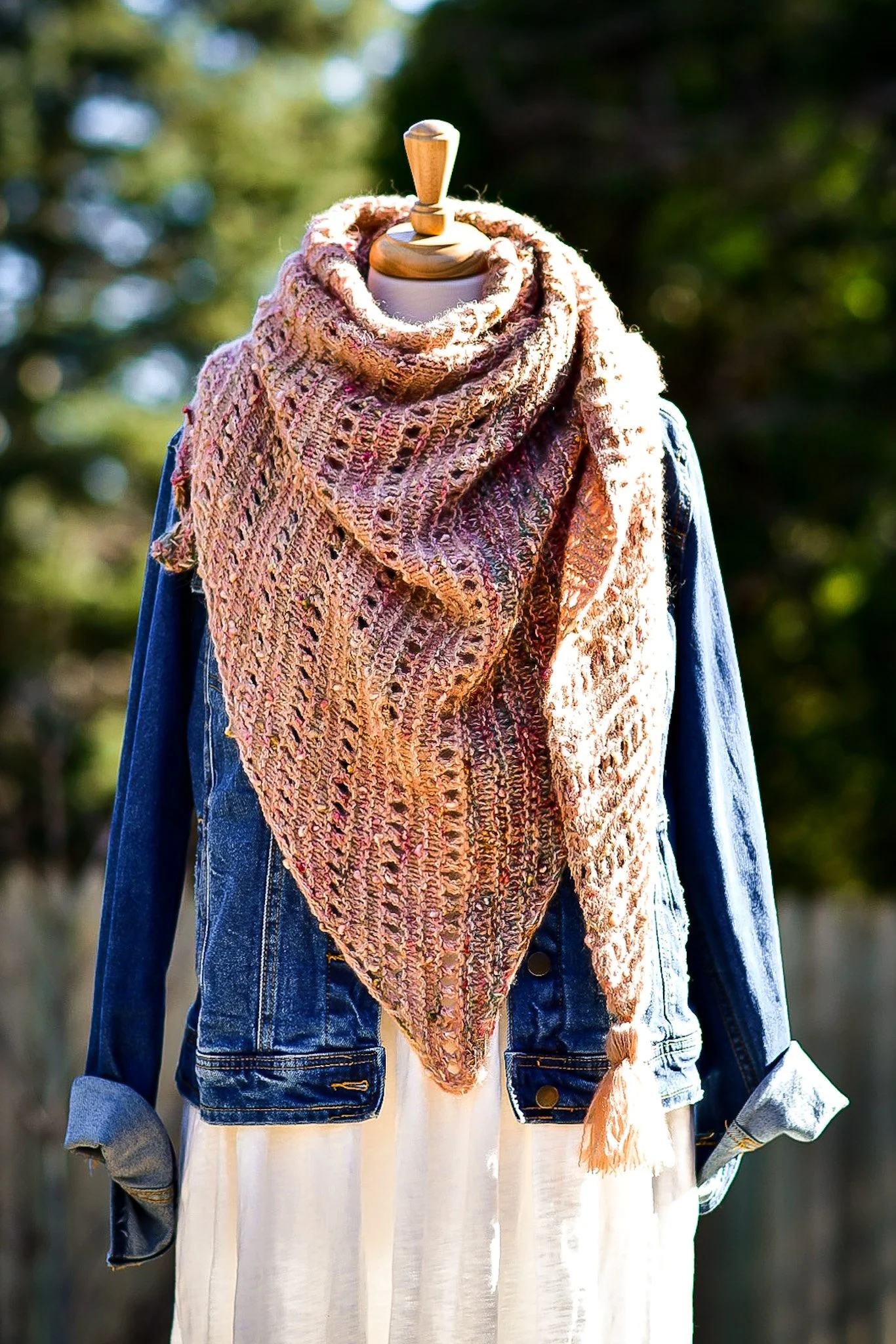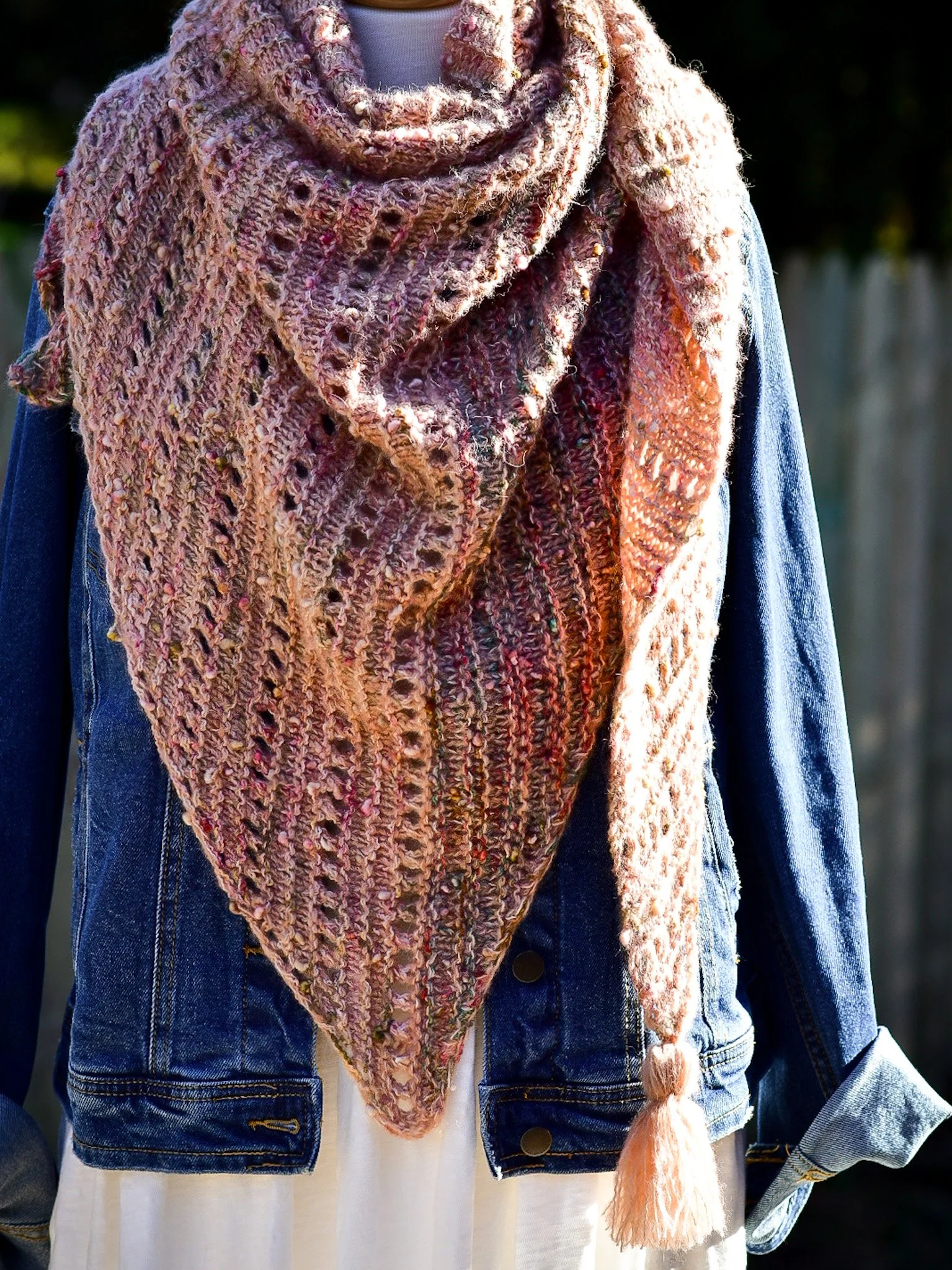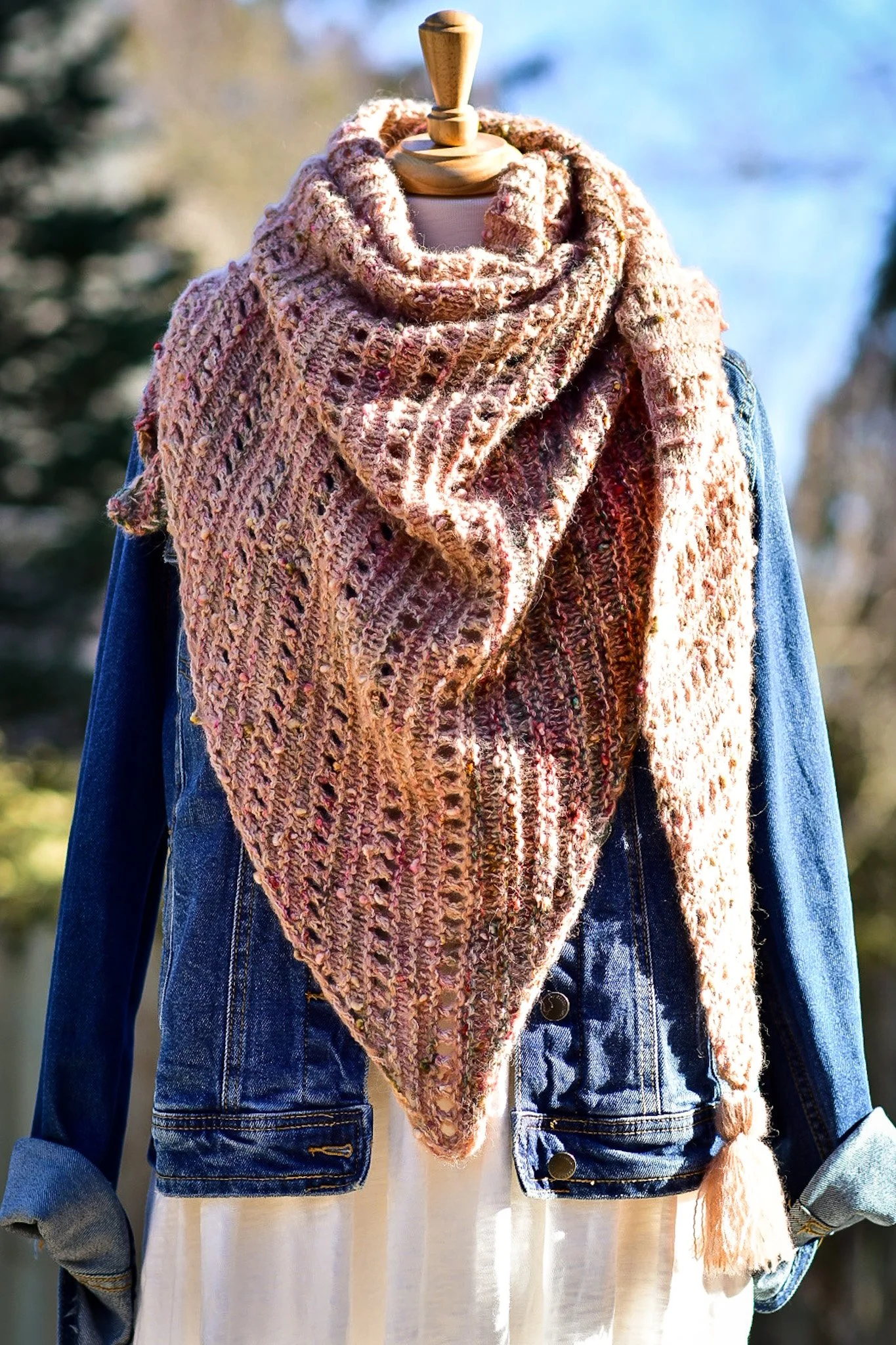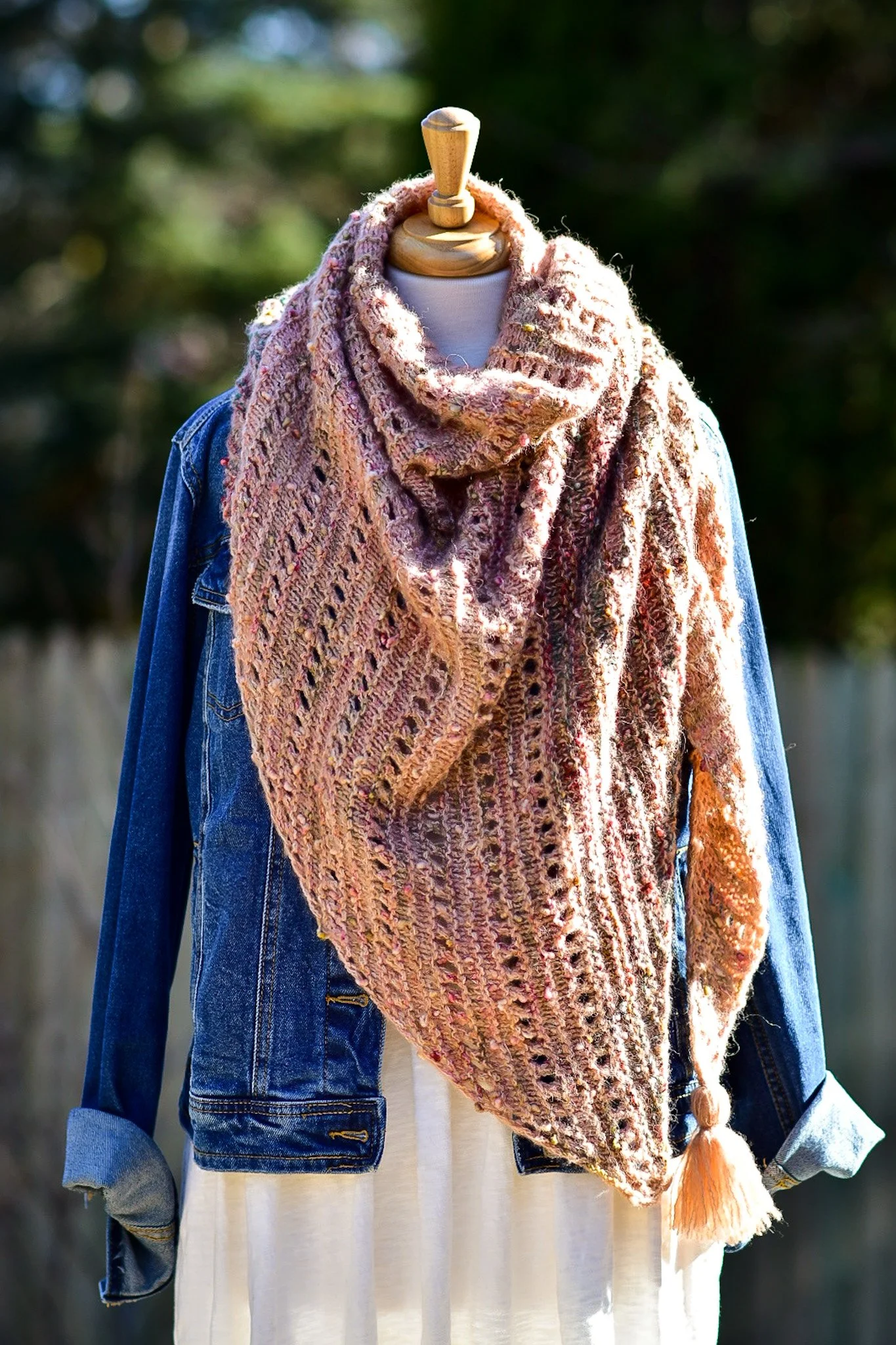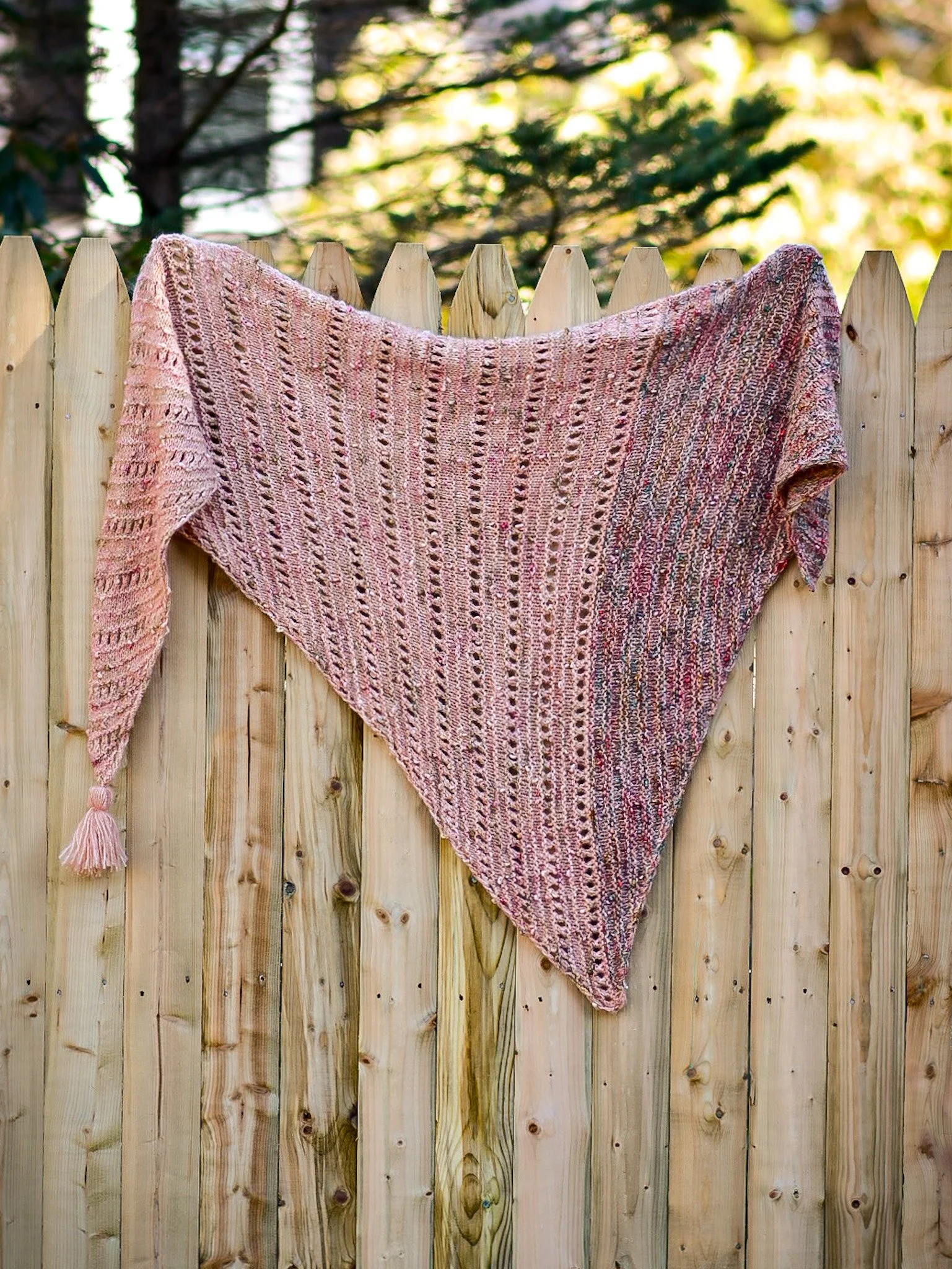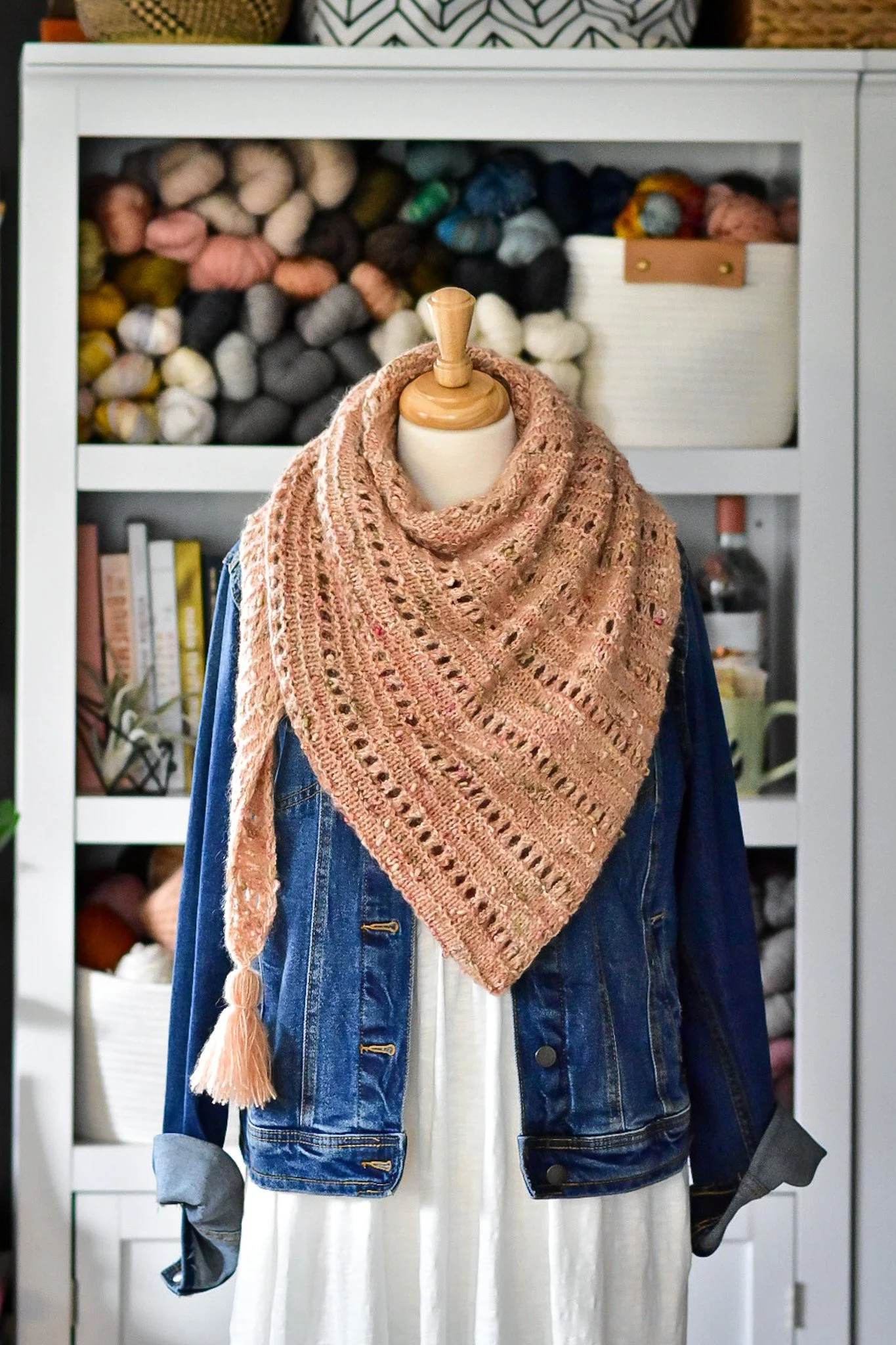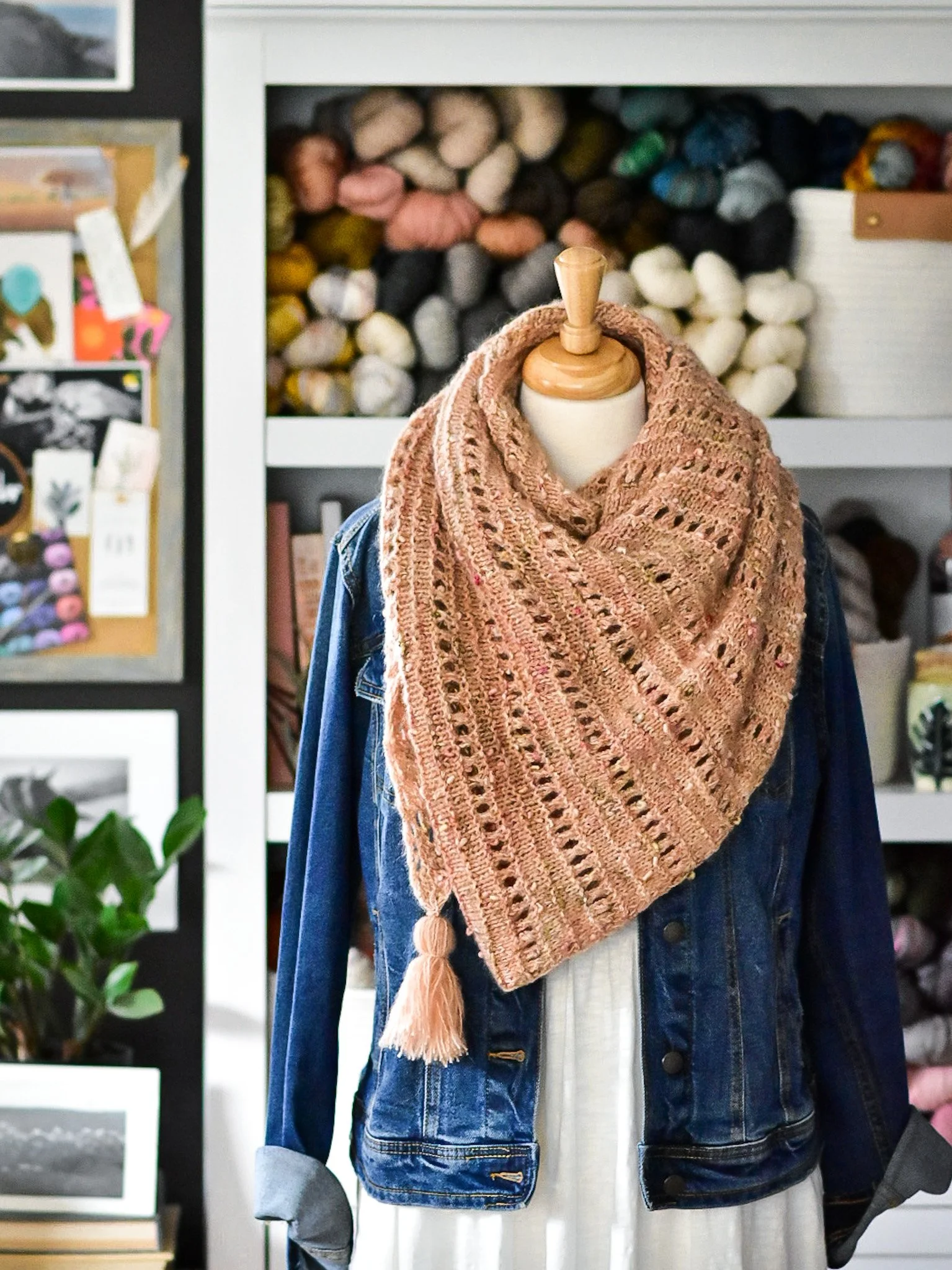Flutter Wrap
Flutter Wrap
Designed to look and feel like a well loved blanket… the one you grab for when you seek the comfort of something familiar, like a gentle hug from a dear friend.
Flutter Wrap is an asymmetrical-triangle shaped wrap (shawl) worked from one point to the other. Adorned with eyelets & squishy texture throughout, Flutter Wrap is delicately cozy… enjoyable to knit and to wear.
Suggested Needles & Notions
• Needle A - US 9 / 5.5 mm, 30” / 81 cm circular needle or one size smaller than B
• Needle B - US 10 / 6 mm, 30” / 81 cm circular needle or size needed for gauge
• Removeable marker to denote RS of work
• Darning needle
• Scissors
Gauge
Modified Garter Stitch: 14 sts / 24 rows per 4” worked flat on US 10 / 5 mm needles, post blocking.
Suggested Yarn & Requirements
Lavender Lune Yarn Co
Yarn A: “Cotton Fluff” Fingering weight
437 yards / 399 meters per 100 grams
38% Baby Alpaca, 25% SW Merino, 25% Nylon, 37% Pima Cotton
• Main Color: 598 yards / 547 meters
Yarn B: “Slub” Fingering weight
438 yards / 400 meters per 100 grams
90% SW Merino, 10% Nylon
• Color 1: 438 yards / 400 meters
• Color 2: 232 yards / 212 meters
Yarn Note
Flutter Wrap is worked holding two strands of fingering weight yarn together, throughout. Part I of this pattern is worked with one strand of Yarn A (Main Color) held together with one strand of Yarn B (Color 1). Part II of this pattern is worked with one strand of Yarn A (Main Color) held together with one strand of Yarn B (Color 2). Alternatively, a single strand of DK weight yarn could be substituted.
Sample reflects the following Lavender Lune Yarn Co. colorways: Bellatrix (Main Color), Flutter (Color 1), Bohemian Cowgirl (Color 2)
Pattern Construction
Flutter Wrap begins with only a handful of stitches. Increases are worked during Part I to the “center drop” length. Part II of this pattern, (the decrease section) decreases twice as fast as Part I increased, creating the asymmetrical shape.
This is an advanced-beginner level pattern.
